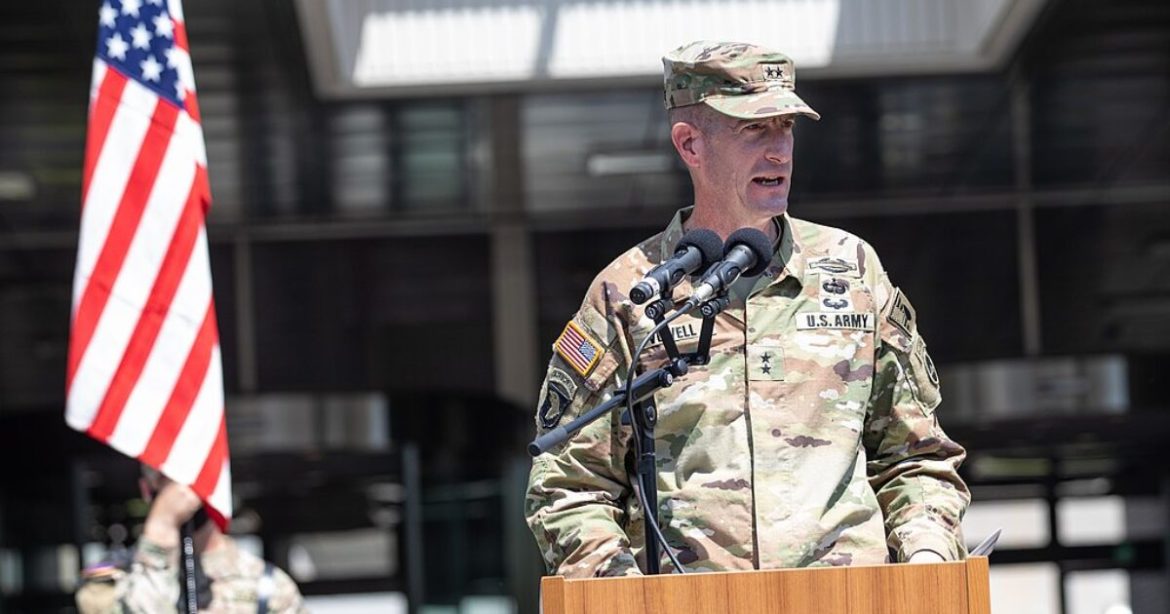

The United States military may be ill-prepared to treat those wounded in a large-scale combat operation. As it stands, the Military Health System (MHS) would find itself caught off guard with limited manpower and proficiency to save lives.
On March 11, 2025, the Senate Committee on Armed Services (SASC) held a hearing “to receive testimony on stabilizing the Military Health System to prepare for large-scale combat operations.” Three retired Air Force senior officers, to include Lt. Gen. (Dr.) Douglas Robb, Maj. Gen. (Dr.) Paul Friedrichs, and Col. (Dr.) Jeremy Cannon, provided witness testimony.
The Gateway Pundit spoke to retired Air Force Lt. Gen. (Dr.) Paul Carlton. The former Surgeon General of the Air Force and board advisor for Stand Together Against Racism and Radicalism in the Services (STARRS) said he is gravely concerned that “military surgeons are not ready to go to war as a result of the criteria the Military Health System (MHS) has established and tried to abide by for the last 20 years.”
Carlton pointed to what he considers one of the most concerning statements of the one-and-a-half-hour committee hearing where Col. (Dr.) Cannon, Professor of Surgery at the Perelman School of Medicine at the University of Pennsylvania, stated “only 10 percent of military general surgeons get the patient volume, acuity, and variety they need to remain combat ready.”
And according to him, recent public statements by Gen. Joel “JB” Vowell, deputy commanding general for U.S. Army Pacific, should make Col. (Dr.) Cannon’s assertion “an utmost concern to the United States and United States military.” Speaking to reporters, Gen. Vowell said:
Our assumptions for planning is that casualty estimates will be much higher than you might have seen or witnessed as part of the Global War on Terror between Iraq and Afghanistan and other places where there are very small numbers, relatively in contacts who were who were killed and injured, as compared to large-scale combat operations. A potential conflict with the People’s Republic of China likely would result in large-scale casualties.
After the hearing, it was reported that Col. (Dr.) Cannon said, “Many will have survivable injuries, yet one in four will die at the hands of an unprepared system.” A few weeks later, senior enlisted leaders found themselves calling upon lawmakers to address underfunding and ongoing problems with health care access for service members and families.
On April 10, the U.S. Government Accountability Office (GAO) recommended the Defense Health Agency (DHA), now managing Defense Department medical facilities, provide an analysis and a plan to accomplish its mission set. While performing the duties of the Assistant Secretary of Defense for Health Affairs, Stephen Ferrara, said, “Readiness cannot be secondary. You cannot cram for readiness. When it comes to mission success, readiness is everything.”
Interestingly, Carlton noted that ten days later, DHA training for medical commanders included the requirement to meet the financial demands of living in 2025 within a 2019 budget, while also failing to address readiness.
“The problem is that the military currently doesn’t have the answer to any of this,” said Carlton. “With a constant threat of large-scale combat operations to occur, we simply can’t allow our unpreparedness to risk moving us back toward the mortality rates that we experienced in Vietnam, Korea, and World War II.”
He admitted a “cost-constrained environment” further exacerbates his concern. “The Defense Department’s military medical budget has been level since 2019, and that means we’ve faced a 40 percent cut under the Biden administration,” he explained. “We are running eight to 10 percent inflation rates, so that’s a real decrease in dollars.”
What’s more, Carlton said, “Our military surgeons aren’t operating enough to maintain proficiency and that means the care is being shifted downtown, which drives up the TRICARE bill and drives up the Medicare bill for those over 65.”
This is a crisis that demands immediate action, the former Air Force Surgeon General asserted. “It is a situation that must be remedied or the repercussions to combat casualty care in large-scale combat operations could be devastating,” while also burgeoning TRICARE (Defense Department healthcare) and Medicare costs.
For this reason, Carlton, members of STARRS, and other concerned veterans suggest convening “a lean and independent outside panel” to address the issues and “figure out the best way to get ahead of them.” The retired Air Force officer admitted, “This administration is business-oriented and very anxious to put solutions into actions, so we stand ready to give them a business case analysis on how to fix it without bleeding the warfighting line of services dry.”
“As professional military officers, we cannot ask the line of services to give us more money, so we have come up with other ways to do that,” Carlton shared. “Our deployable military members in the medical service should be embedded in Level 1 Trauma Centers, earning their keep and for the monies that they earn while increasing proficiency.” If a hosting university bore some of the weight, he noted, “we might be able to start paying down the TRICARE bill.”
“Another potential solution is to downsize the [MHS] Direct Care system and embed people in the National Guard and the Reserve forces so that they’re ready to go from their civilian practices when called upon,” he shared. “This could be another way to lower costs while keeping them prepared.”
“We can’t just raise our hands and say we’ll accept a higher mortality rate,” Carlton argued. “We have to address this issue before it’s too late.” STARRS welcomes an opportunity to assist President Donald Trump and Defense Secretary Pete Hegseth in offering solutions to this vexing problem.
Watch the March 11 SASC committee hearing in its entirety via PBS NewsHour:
The post Military General Surgeons Are Not Adequately Prepared for Saving the Lives of Wounded Service Members in Large-Scale Combat Operations appeared first on The Gateway Pundit.

